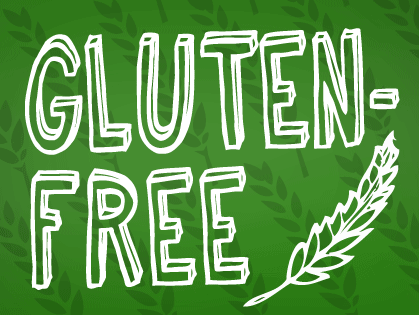
According to the Celiac Foundation Website, Celiac disease, the constant battle of the digestive system attacking itself everytime gluten enters the body, affects 1 in every 100 people worldwide. Celiac disease forces people to change their diet because gluten is common in many foods.
When people with Celiac disease consume products containing gluten, their bodies don’t absorb the nutrients into the bloodstream, according to Celiac Central. A life-long, gluten-free diet is the only known treatment for CD.
CD affects people of all ages, male or female. Misdiagnoses relate back to other diseases, such as Crohn’s disease, intestinal infections and lactose intolerance, when really they have CD. To find out if the issue is CD, one must first have a blood test. Sophomore Reagan Wright, diagnosed with CD in 2014, received numerous misdiagnoses from her doctor.
“When I was little they told me it was all in my head,” Wright said. “They never thought anything was wrong with me.”
According to CNN people are just now beginning to appreciate gluten’s impact on our health. People are against eating gluten, even though they don’t have CD. Freshman Anna Jordan doesn’t have CD, and yet she does not eat gluten.
“I don’t eat gluten because it makes me feel sick,” Jordan said. “I think it’s because of the chemical breakdown that occurs when I eat gluten.”
Rewiring eating habits to a gluten-free diet might cause individuals to become much more picky in their food choices. According to Mayo Clinic, to help pursue a gluten-free diet, avoid eating foods that mix or process with grains containing gluten or preservatives.
“When I get sick during softball games everyone cheers,” Wright said. “I always this it’s funny.”
People that avoid eating gluten don’t always go eat at restaurants because of the high amounts of gluten in their products. However, some restaurants now have a gluten-free menu for their customers with gluten sensitivity.
“I notice that I tend to eat healthier,” Jordan said. “When I eat healthier, I feel better.”
Anyone new to having CD disease might not always know what they can and cannot eat. Foods like breads and pastas are some of the highest gluten-containing foods, according to Natural News. In order to be successful in avoiding all foods containing gluten, avoid all grain products, and be sure that the food is never processed with other foods containing traces of gluten.
“Eating healthier foods helps me avoid some of the chemicals found in gluten,” Jordan said.
Although most foods contain gluten, some foods are healthy for people with CD to eat. According to Livestrong, dairy products like milk fit a gluten-free diet. Even though cows or goats may eat products containing gluten, it doesn’t transfer to their milk.
“I eat more fruits, vegetables and meat,” Wright said. “I do my best not to eat gluten.”
Finding the right foods or diet plan in order to avoid gluten containing products can be difficult. Refer to the Gluten Free Works website for tips and foods on what to eat. People do not always realize how many foods contain gluten. According to Gluten Free Works, the meaning of a gluten-free diet can be controversial because of the vast amounts of gluten found in certain food products.
“I don’t follow my diet as well as I should,” Wright said. “Lately my legs have been itchy because I’ve been eating gluten.”
















Walker • Apr 17, 2014 at 12:06 pm
If I had to stop eating things with gluten in them, I’d probably be pretty bummed. Nice story, hope to see more soon.
Madison Fountain • Apr 17, 2014 at 11:47 am
I really like gluten. So I’m gonna eat only gluten.